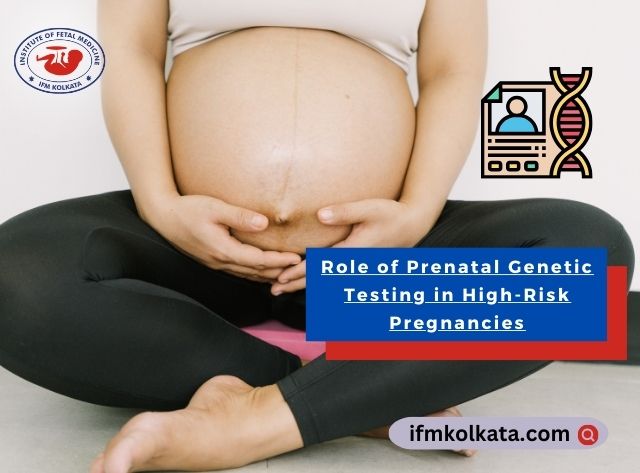Prenatal genetic testing is a vital part of managing high-risk pregnancies, helping to identify potential genetic conditions early. These tests offer expectant parents a clearer picture of their baby’s health, allowing for informed decision-making and early interventions if necessary. High-risk pregnancies, such as those with a family history of genetic disorders, maternal age, or previous complications, benefit significantly from genetic testing.
Types of Prenatal Genetic Testing
There are several prenatal genetic tests available, ranging from non-invasive screenings to invasive diagnostic tests:
- Non-Invasive Prenatal Testing (NIPT):
NIPT is a blood test that screens for common chromosomal abnormalities, such as Down syndrome, Trisomy 18, and Trisomy 13. This test carries no risk to the baby and provides high accuracy, making it a preferred choice for many high-risk pregnancies. - Amniocentesis:
Amniocentesis involves taking a sample of the amniotic fluid surrounding the baby to test for genetic conditions, such as Down syndrome, cystic fibrosis, and other inherited disorders. This test is performed between 16-20 weeks of pregnancy and offers definitive results. - Chorionic Villus Sampling (CVS):
CVS involves taking a small sample of tissue from the placenta to test for genetic conditions. It is usually done between 12-15 weeks of pregnancy and offers early results.
Why Prenatal Genetic Testing is Essential for High-Risk Pregnancies
- Identifying Risks Early: Early detection of genetic abnormalities allows for better management of the pregnancy, preparing parents and healthcare providers for potential complications.
- Informed Decision-Making: Prenatal genetic testing allows parents to make informed decisions about continuing the pregnancy or exploring treatment options.
- Managing High-Risk Pregnancies: In some cases, prenatal testing helps determine the best course of action to ensure the health and well-being of both the mother and the baby.
What Happens After Testing?
Once the results of prenatal genetic tests are available, healthcare providers and genetic counsellors will discuss the findings with the parents. If any issues are detected, the healthcare team can recommend additional tests, treatments, or interventions to manage the condition. Early intervention, such as special care plans or additional monitoring during the pregnancy, can improve outcomes for both mother and baby.

